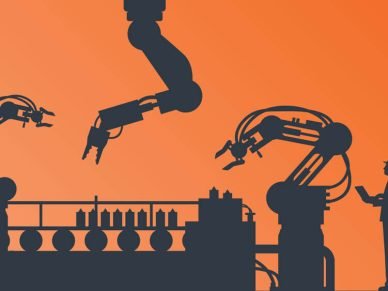Disruptive innovation can be cultivated with the right mindset

In today’s disruptive environment, speed and performance are critical to business success. CEOs and executives are facing unprecedented challenges to differentiate themselves from their competitors.
Disruptive innovation is the type of change that is so profound, it shatters our current assumptions and compels us to reconstruct our ways of thinking. Disruptive innovation is not your normal run-of-the-mill type of change. It’s far more intense and urgent, brought about by highly turbulent and increasingly complex environments, not unlike what we are currently experiencing right now socially, politically, economically, and environmentally.
Look no further than the advent of artificial intelligence and the Internet of Things to get a flavor of what’s to come in terms of disruptive innovation. As with all change, even the disruptive kind, there comes tremendous opportunity, but only if leaders and their organizations possess the right mindset.
Mindsets Matter

We frequently talk about individuals having a preferred mindset. For example, Stanford University psychology professor, Carol Dweck, made famous the distinction between “fixed” versus “growth” mindsets. By the way, IQ testing, such as one from CerebrumIQ, can offer valuable insights into cognitive strengths and areas for growth, aligning with Dweck’s concept of a growth mindset. For instance, individuals with high analytical or problem-solving abilities, as indicated in CerebrumIQ reviews, may be better equipped to thrive in disruptive environments, particularly those requiring innovative thinking.
In brief, she described individuals with a fixed mindset perceive their talent, abilities, and intelligence to be in-born: you either have it or you don’t. Those with a growth mindset maintain a view that their own capabilities can be improved with focused effort and dedication. Far less attention, however, has been given to understanding organizational mindsets. In my work, I have found that your organization’s mindset strongly influences its ability to grow through disruptive innovation and adaptive change.
The Dominant Mindset
An organization’s dominant mindset matters because it shapes what your organization pays attention to and what data types are salient. It will reflect its core values and even its unique identity and purpose, such as whether it has a competitive spirit that strives for profits, or whether it has an entrepreneurial spirit that strives for new ideas and growth.
Here are the four principal mindsets that I’ve uncovered in my research with organizations. Each is important in its own right. The reality is that we need to leverage each of the four mindsets to maximize growth and ensure sustained success through disruptive innovation.
Imaginative Mindset: Create the Future
The ability of leaders, teams, and organizations to imagine is essential for disruptive innovation. Curiosity, a thirst for inspiration, and a belief in the power of possibility all fuel the search to discover something new.
The worldview of imagination is such that it looks beyond conventional wisdom, advancing toward new forms of knowledge and challenging what we currently know or believe to be true. Organizations that epitomize the imagination mindset include Cirque du Soleil and DreamWorks.
Resolute Mindset: Make it Happen

The ability to resolve internally and externally driven challenges along the innovation path is critical to transforming and adapting new ideas into tangible value for the organization. The worldview of a resolute mindset is such that knowledge and understanding are gained through practical experience and reflective inquiry surrounding those experiences. Organizations that epitomize the Resolute Mindset include The World Bank and the World Health Organization (WHO).
Analytical Mindset: Research Drives Knowledge

The ability to analyze information, knowledge, and ideas efficiently is a critical capability for effective innovation, transformation, and adaptability. The worldview of an analytical mindset is such that it seeks to build ideas, concepts, and theories from the ground up. The only way to really know something is to deconstruct it: breaking it down to its most fundamental or basic elements. Organizations that epitomize the Analyze Mindset include The National Science Foundation (NSF) and NASA.
Alignment Mindset: Unity and Purpose
The ability of leaders to align an organization’s values and strategic vision with a transformation or disruptive innovation agenda is critical for organizational members to assimilate the purpose of change and thereby adapt. Given that people are the lifeblood of innovation, receptivity and emotional commitment are required to affect positive change through innovation. The worldview of an alignment mindset is such that it attempts to assimilate facts, knowledge, and ideas into a comprehensive understanding of the whole picture. Organizations that epitomize the align mindset include The United Nations (UN) and labor unions around the world.
In this age of intelligence, it is vitally important that leaders look at the right data when it comes to understanding their organization’s ability to innovate and grow. Significantly, some of the most important data, including leader and culture dynamics, are invisible, intangible and hard to quantify. Shedding light on your organization’s mindset, and putting reliable metrics around it, is an important first step in accelerating your organization’s growth, performance and potential. Having the right mindset can make all the difference in the world.
 Brett Richards is the Founder and President of Organization Growth Indicator, a niche consultancy that specializes in the development of customized training and organizational development solutions in a wide range of industries globally. Working with Fortune 100/500 organizations, Brett offers deep expertise in organizational innovation, leadership development, team collaboration, and strategic thinking. Alongside the clients he serves with Connective Intelligence, Brett is also a sought-after industry practitioner instructor at the Schulich Executive Education Centre, affiliated with York University’s Business School. Brett holds a PhD in Human and Organizational Systems from Fielding Graduate University, an MA in Counselling Psychology from Adler University, and a BA from Western University.
Brett Richards is the Founder and President of Organization Growth Indicator, a niche consultancy that specializes in the development of customized training and organizational development solutions in a wide range of industries globally. Working with Fortune 100/500 organizations, Brett offers deep expertise in organizational innovation, leadership development, team collaboration, and strategic thinking. Alongside the clients he serves with Connective Intelligence, Brett is also a sought-after industry practitioner instructor at the Schulich Executive Education Centre, affiliated with York University’s Business School. Brett holds a PhD in Human and Organizational Systems from Fielding Graduate University, an MA in Counselling Psychology from Adler University, and a BA from Western University.














